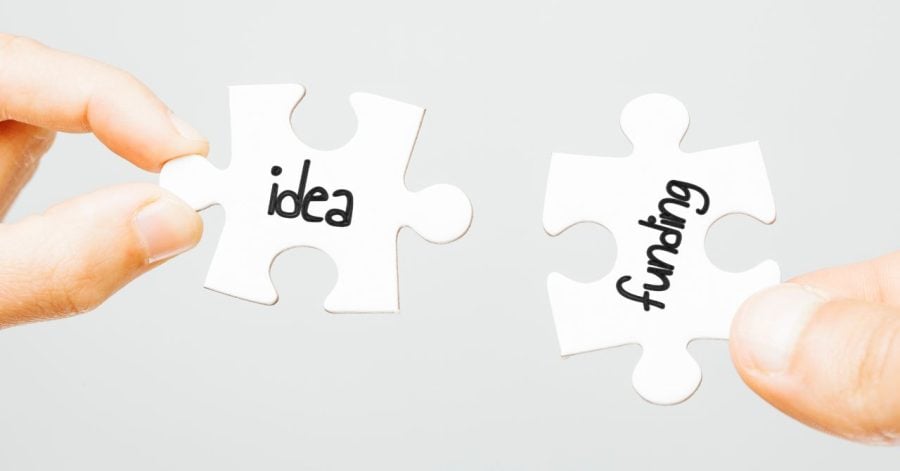You’ve had this idea running through your mind, causing you some sleepless nights for some time now. It’s a brilliant idea. You’re the ideal person to do it and you can already imagine the steady flow of clients. But there’s one thing in the way. Your budget. This is where startup funding comes in, allowing you to take your idea off the ground both through financial support and connections to the right people.
Funding a startup comes in many shapes and forms – from personal funds and support from family and friends, to bank loans, accelerators, angel investors and VC funds. The first ones on the list are pretty clear and self-explanatory. Well, the latter are not rocket science either. You just need to get a good overview of the different funding rounds and what it takes to win the investors over.
In this article you’ll learn about the different funding rounds and at what stage a startup needs to be at to go to the next round. It’s important to keep in mind that there are no strict rules here and the borders between the different rounds can be quite blurry, meaning one startup could receive a funding of $2M at a seed stage, whereas another one could raise the same amount at Series A.
Let’s explore the five most common types of startup funding rounds.
Startup Funding Rounds
Pre-Seed Round
Once an idea for a startup is born and the founders are putting in effort to get it off the ground, this is the initial and so-called pre-seed stage.
This stage is usually funded by the founders themselves, family, friends and any other close supporters. Even though pre-seed happens so early in the “life” of a startup, it’s not uncommon for VCs to also get involved – something we’ve witnessed with companies like Kardi AI, which closed a €350K pre-seed round led by BrightCap Ventures, PlanDelta who raised €350K pre-seed from Eleven Ventures, as well as Proptio that raised €2M in pre-seed funding with capital from investment funds and more than 20 angel investors.
Seed Round
The first official funding a startup receives is typically considered seed funding. Imagine an actual seed that’s planted in soil and given enough water to start growing roots and developing into a tree. This is what seed funding is like for a startup – this early financial support allows the business to create a strong foundation, test if “soil” is appropriate, and start growing. At this stage the money is usually used for things like market research, product development and validation, hiring the right team etc.
Potential investors for the seed funding round include venture capital companies, incubators, angel investors, to name a few. The amount of money raised at this stage can vary drastically, but companies can commonly receive anything from €10,000 up to €2 million.
Series A Round
Once a company has successfully planted its seed (established itself as a brand) and has shown that it can successfully grow fruits (build traction), this is when Series A funding may come into play.
Series A rounds are aimed at helping a startup to further grow their user base, optimize their product or even expand to different markets, and can usually bring from €2 million to €15 million. Take these numbers with a pinch of salt – we have witnessed examples of companies going beyond €15 million, such as the Croatian robotics company Gideon Brothers, which raised $31 million in their Series A round in June 2022.
This round of funding typically comes from venture capital funds, occasionally angel investors, and even crowdfunding. Some of the most important factors for a startup to get to a Series A round is to not just have a great idea, but to already have a strategy in place on how to turn this idea into a money-making machine. Investors usually expect startups to show real data progress they’ve achieved from previous investments, which serves as a proof that the business keeps scaling.
Series B Round
Reaching Series B round means that the company has already found its product/market fit, has a solid user base and it’s ready to expand to the next level. When talking about startups at stage B, this usually means they have valuations around €30 million to €60 million.
Series B funding round typically brings the company between €7 million to €10 million, but it can also go up higher. For example, the first Bulgarian unicorn – Payhawk, raised a historic $112M at Series B round at the end of 2021.
This type of funding is normally led by venture capital funds, and it’s not uncommon for this to be the same investors who led the previous round.
Series C Round
Making it to Series C means that the company is already experiencing great success. To give you an idea, the valuation of such a business is usually in the area of €100+ million, though it also can be much higher.
This round of funding is usually needed to expand globally, develop new products or even acquire other companies. Overall, the goal is growing as quickly as possible. A good example is the sales intelligence provider Cognism, which secured $87.5M in Series C funding in January 2022 with plans to expand across Europe, as well as strengthen its position in the US.
Since Series C round is considered less risky, as the company has already proved to be successful, it’s highly likely that more investors will come into the picture. The round can be led by venture capital funds, investment banks, private equity firms and others.
Oftentimes, Series C is the last round of funding a startup receives, though it’s not uncommon for companies to go to Series D, Series E and even further. This is also among the last pushes to prepare the company for an IPO or an exit.
A great example of a company that went beyond Series C is the Croatian electric vehicle manufacturer Rimac Group, which raised €500M in a Series D in June 2022. The first Romanian unicorn – UiPath, also extended its funding rounds past Series C just before it filed for an IPO in the beginning of 2021. At this point, the company’s private market value had reached $35B after a Series F round of funding of $750M.








